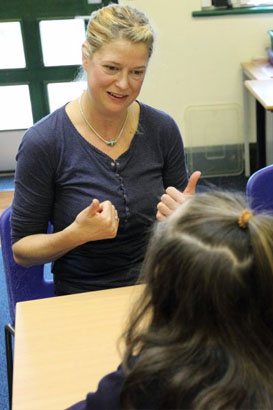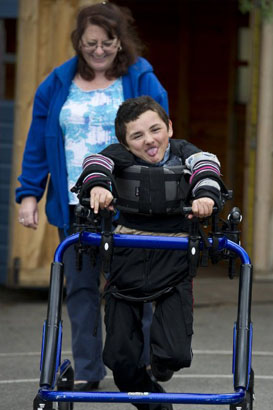
There is a range of programmes to support work with parents. School leaders sometimes work with local services to choose and deliver an evidence based parenting programme. A well-researched example is the Stepping Stones Triple P. This is an adaptation of the classic Triple P - Positive Parenting Program®, tailored to the need of parents of pre-adolescent children with disabilities. It aims to enhance parents' self-sufficiency in managing their children's behaviour.
One of its strengths is to recognise that children's behavioural problems vary in severity and that families have different levels of skills in managing these problems.
Which evidence based parenting programmes are running in your locality?

Triple P incorporates five levels of intervention:
Level 1: Provides parents with useful information.
Level 2: : Provides guidance for parents of children with mild behavioural difficulties.
Level 3:Provides skills training for parents of children with mild to moderate behavioural difficulties.
Level 4: Provides intensive training (either individually or in a group format) for parents of children with more severe behavioural difficulties.
Level 5: Provides enhanced training for families where parenting difficulties are complicated by other sources of family stress.
with information

Level 1 of Triple P provides parents with useful information about promoting positive behaviour.
Audit what your school does to make sure parents have the information they need. Consider information that your school has developed and that which is provided at a local or national level.
How do you ensure access to the materials where, for example, parents have literacy difficulties, or where English is not a first language, or where parents are in transition? Is there anything that you could do better?
Make an action plan to improve practice.
Monitor the implementation of the action plan and evaluate the effectiveness of the changes you make.

Harrold, M., Lutzker, J., Campbell, R. and Touchetter, P. (1992) Improving parent-child interactions for families with developmental disabilities. Journal of Behaviour Therapy and Experimental Psychiatry, 23, 89-100.
Scott, S., Spender, Q., Doolan, M., Jacobs, B. and Aspland, H. (2001) Multicentre controlled trial of parenting groups for childhood antisocial behaviour in clinical practice: nipping conduct problems in the bud. British Medical Journal, 323:194